|
Research Projects (since 2003 - present)
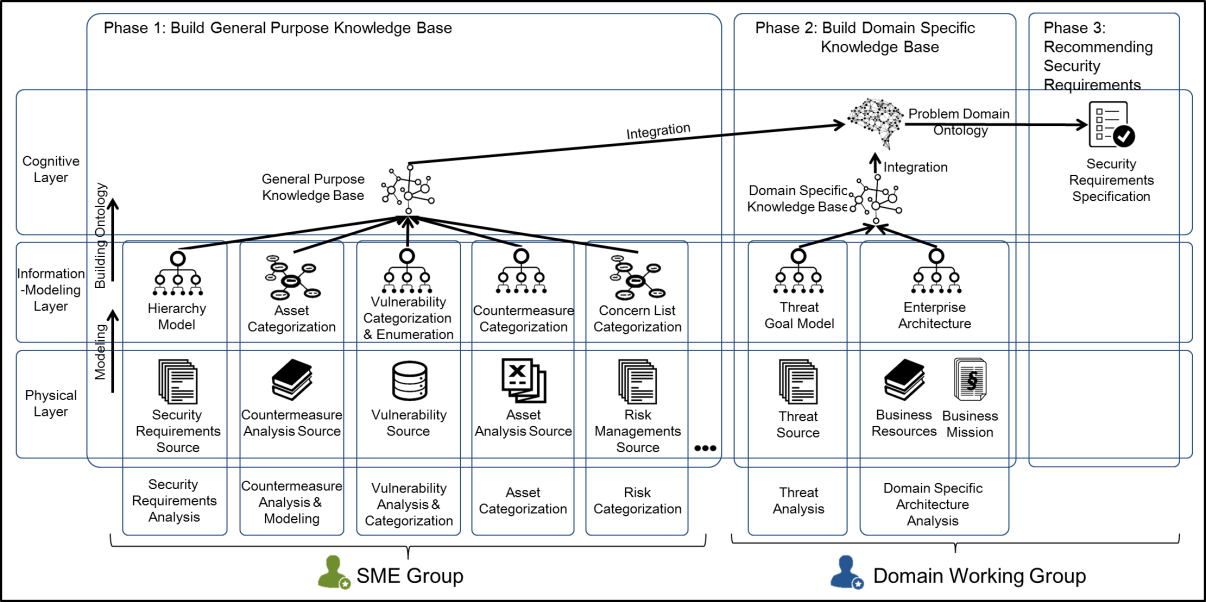 Security Requirements Recommendation Framework for
Mission-Critical Systems in Socio-Technical
Environments:
This research aims to understand and recommend the security
requirements based on the domain and system related knowledge.
By considering the problem such as Cognitive,
Information-Modeling and Physical Layers, we can easily derive
the important security requirements, which are difficult to be
derived from the human's thought.
Learn more...
Security Requirements Recommendation Framework for
Mission-Critical Systems in Socio-Technical
Environments:
This research aims to understand and recommend the security
requirements based on the domain and system related knowledge.
By considering the problem such as Cognitive,
Information-Modeling and Physical Layers, we can easily derive
the important security requirements, which are difficult to be
derived from the human's thought.
Learn more...
Keywords: Security Requirements, Social Engineering,
Advanced Persistent Threat, Human Factor, Ontology, 3-layer
model
 Develop of Robot Path Planning Algorithm in Virtual
Manufacturing Environment of CPS Platform using Machine
Learning:
The aim of this project is to develop new robot path planning
algorithm for the task sequence and optimization of robots
that need to handle a lot of work in virtual manufacturing
environment by using optimization algorithm in Artificial
Intelligence. Analyze the problem of optimal robot path and
work plan in multi-tasking and then verify the efficiency of
the algorithm by applying it to actual robot work environment.
Learn more...
Develop of Robot Path Planning Algorithm in Virtual
Manufacturing Environment of CPS Platform using Machine
Learning:
The aim of this project is to develop new robot path planning
algorithm for the task sequence and optimization of robots
that need to handle a lot of work in virtual manufacturing
environment by using optimization algorithm in Artificial
Intelligence. Analyze the problem of optimal robot path and
work plan in multi-tasking and then verify the efficiency of
the algorithm by applying it to actual robot work environment.
Learn more...
Keywords: Industrial Robot, Path Searching, Optimal
Path, Genetic Algorithm
 Dynamic Self-Adaptive Software Technology using
Collective Intelligence:
This project mainly aims to develop ontological engineering
process for self-adaptive software intelligence to analyze
problems, if the problem occurs by changes of a situation and
environment. For the self-adaptation to the various known and
unknown situation, the system should have proper knowledge and
the relationship between them.
Learn more...
Dynamic Self-Adaptive Software Technology using
Collective Intelligence:
This project mainly aims to develop ontological engineering
process for self-adaptive software intelligence to analyze
problems, if the problem occurs by changes of a situation and
environment. For the self-adaptation to the various known and
unknown situation, the system should have proper knowledge and
the relationship between them.
Learn more...
Keywords: Self-Adaptive, Modeling, Ontology, Collective
Intelligence, Software Engineering
 Context-aware Goal-driven Service Composition using
Planning for Intelligent Service in Smart Grid:
This project aims to develop a service composition method to
provide a context-aware service that satisfies requirements in
Smart Grid using Goal-driven Service Requirements Modeling and
Service Composition through HTN (Hierarchical Task Network)
planning.
Learn more...
Context-aware Goal-driven Service Composition using
Planning for Intelligent Service in Smart Grid:
This project aims to develop a service composition method to
provide a context-aware service that satisfies requirements in
Smart Grid using Goal-driven Service Requirements Modeling and
Service Composition through HTN (Hierarchical Task Network)
planning.
Learn more...
Keywords: Self-Adasptive, Modeling, Ontology,
Goal-driven, Context-aware, Planning, Software
Engineering
 User's Life-Log based Personalized Obesity Prevention
Solution:
This project aims to develop the Health Care Agent to help the
user behavior revision to prevent the obesity caused by the
bad behavior patterns such as eating habits and exercise
habits. These habits are recognized and classified based on
the user's life-logs, which are collected through the smart
phone or other human-related devices. By analyzing the user's
habits and behavior, the agent automatically recommends
certain solutions to prevent the obesity and make the user
healthy.
Learn more...
User's Life-Log based Personalized Obesity Prevention
Solution:
This project aims to develop the Health Care Agent to help the
user behavior revision to prevent the obesity caused by the
bad behavior patterns such as eating habits and exercise
habits. These habits are recognized and classified based on
the user's life-logs, which are collected through the smart
phone or other human-related devices. By analyzing the user's
habits and behavior, the agent automatically recommends
certain solutions to prevent the obesity and make the user
healthy.
Learn more...
Keywords: Life-Log, Prevention, Health Care Agent,
obesity, Pattern
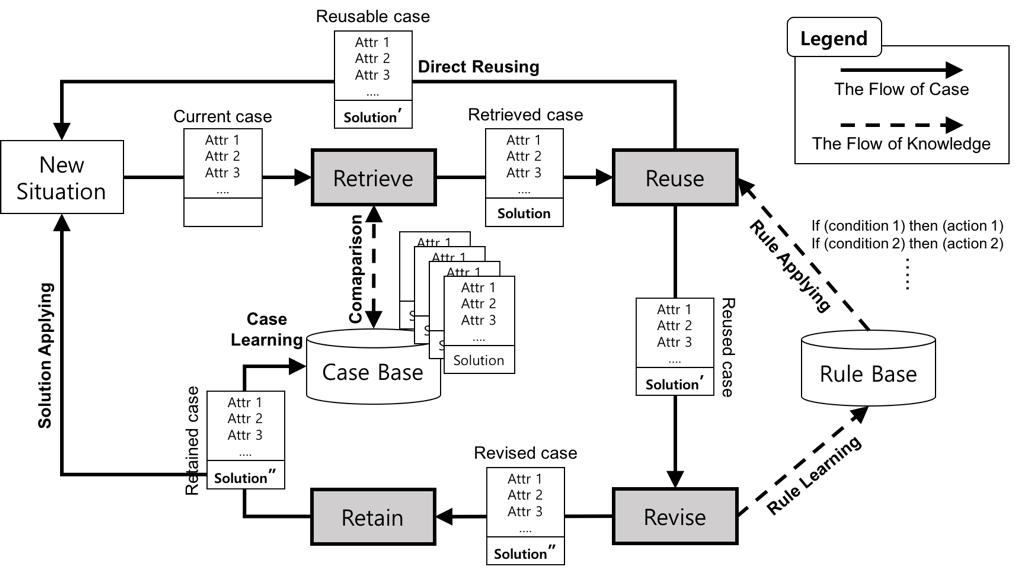 Analogical Reasoning for Learning Adaptive Behavioral
Plans:
This project aims to develop the unified learning approach for
the simulation agent to plan more appropriate behaviors. The
proposed approach is composing with data-driven approach and
knowledge-driven approach in order to complement the
shortcoming of each other through the other's advantage.
Learn more...
Analogical Reasoning for Learning Adaptive Behavioral
Plans:
This project aims to develop the unified learning approach for
the simulation agent to plan more appropriate behaviors. The
proposed approach is composing with data-driven approach and
knowledge-driven approach in order to complement the
shortcoming of each other through the other's advantage.
Learn more...
Keywords: Self-Adasptive, Reasoning, Learning Approach,
Behavioral Plan, data-driven
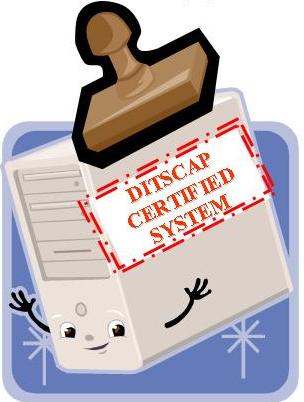  The DITSCAP Automation:
DITSCAP automation involves the collection of information from
various sources, using a uniform representation scheme and
transforming static requirements from multiple documents into
active ones that link to each other from different
perspectives, allowing for their reuse and evolution through
all the stages of the system lifecycle.
Learn more... The DITSCAP Automation:
DITSCAP automation involves the collection of information from
various sources, using a uniform representation scheme and
transforming static requirements from multiple documents into
active ones that link to each other from different
perspectives, allowing for their reuse and evolution through
all the stages of the system lifecycle.
Learn more...
Keywords: Security Certification & Accreditation,
Security Requirements Engineering, Ontological
Engineering
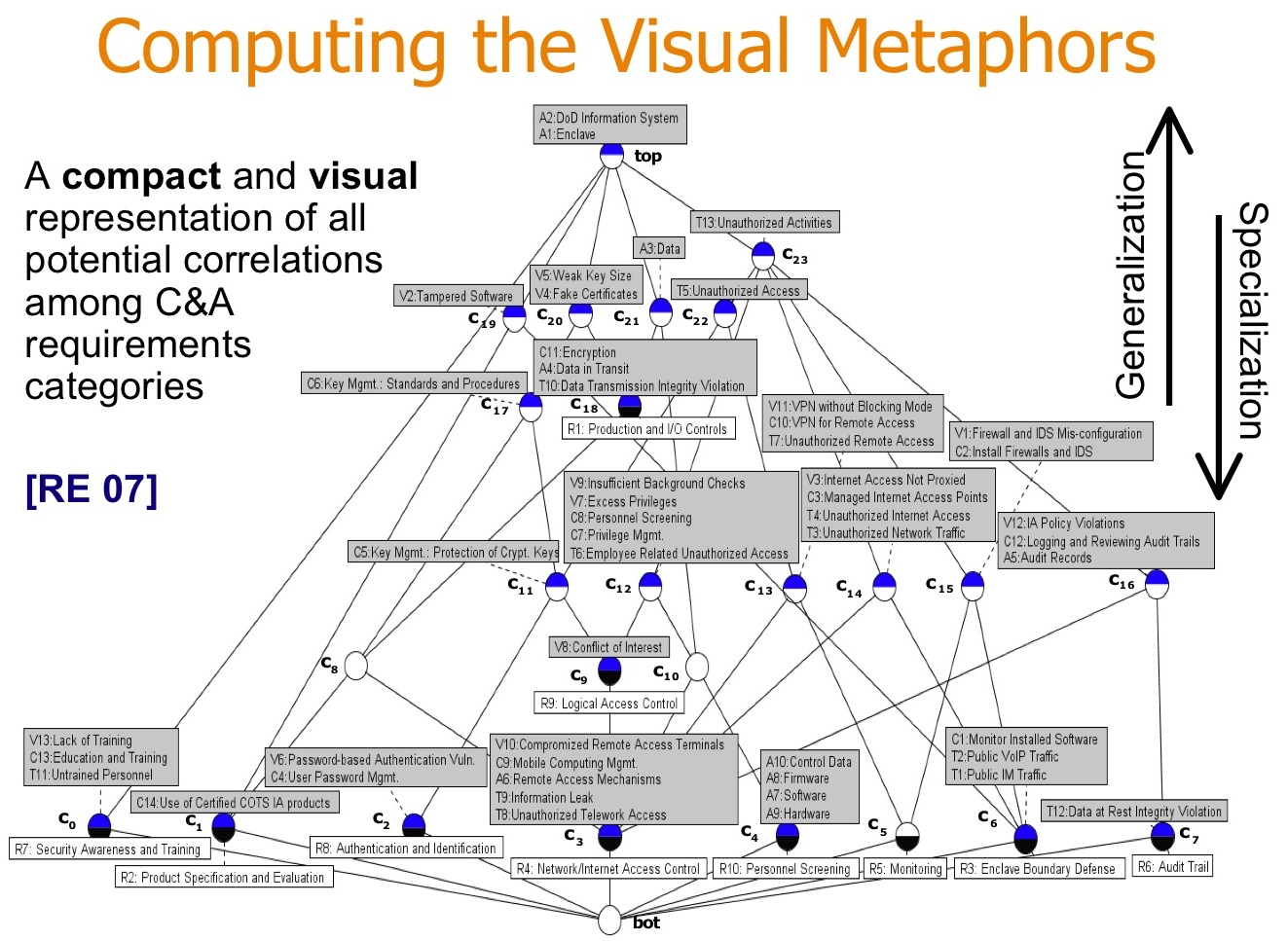  Requirements-driven Software Certification and
Accreditation: A Knowledge-intensive Approach to Support
the Needs for Dependable Software:
In this project we explore techniques for conducting
C&A requirements-driven risk assessment and other secure
software assurance C&A activities. Our ongoing activities
involve building a Requirements-driven Workbench to support
C&A activities.
Learn more... Requirements-driven Software Certification and
Accreditation: A Knowledge-intensive Approach to Support
the Needs for Dependable Software:
In this project we explore techniques for conducting
C&A requirements-driven risk assessment and other secure
software assurance C&A activities. Our ongoing activities
involve building a Requirements-driven Workbench to support
C&A activities.
Learn more...
Keywords: Risk Understanding & Analysis, Compliance
Management, Visual Analytics, Multi-dimensional Analysis
 GenOM: As we move towards domain-independent interdisciplinary
research, the objects (or models) used in each application
model should be interoperable and reusable. In this research
project, we build such an interoperable and reusable object
computing environment called Generic Object Model (GenOM).
Learn more... GenOM: As we move towards domain-independent interdisciplinary
research, the objects (or models) used in each application
model should be interoperable and reusable. In this research
project, we build such an interoperable and reusable object
computing environment called Generic Object Model (GenOM).
Learn more...
GenOM-DB:
Most real world applications amass large amounts of data which
needs to be understood and processed appropriately. A RDBMS
system usually stores and manages this data in the form of
tables. But, analytical intelligence functions usually deal
with abstractions of a conceptual model. However, Scaling-up
of the Ontological representation space (A Conceptual Domain
Model) to a large instance space (possibly in a RDBMS) is a
difficult problem. In this research we investigate the
mappings between the ontological representation space, to a
large instance representation space usually stored in a
relational database.
Keywords: Object Model, Knowledge Model, Knowledge
Representation, Semantic Web
 Critical Infrastructure Protection (CIP) Modeling and
Analysis:
Essential to the practice of CIP planning and drills are two
pieces of knowledge. One is about the interactions among
different CI components in a public utility system, and the
other the relation between the functionality of a public
utility system and the interactions among the system’s
CI components. In this project, we study an object-oriented
method that facilitates CIP professionals’ learning of
the interactions among CI components in relation to the
functionality of a public utility system.
Learn more... Critical Infrastructure Protection (CIP) Modeling and
Analysis:
Essential to the practice of CIP planning and drills are two
pieces of knowledge. One is about the interactions among
different CI components in a public utility system, and the
other the relation between the functionality of a public
utility system and the interactions among the system’s
CI components. In this project, we study an object-oriented
method that facilitates CIP professionals’ learning of
the interactions among CI components in relation to the
functionality of a public utility system.
Learn more...
Keywords: Critical Infrastructure Modeling, Simulation,
Knowledge Modeling, Interdependent Analysis, What-if
Analysis
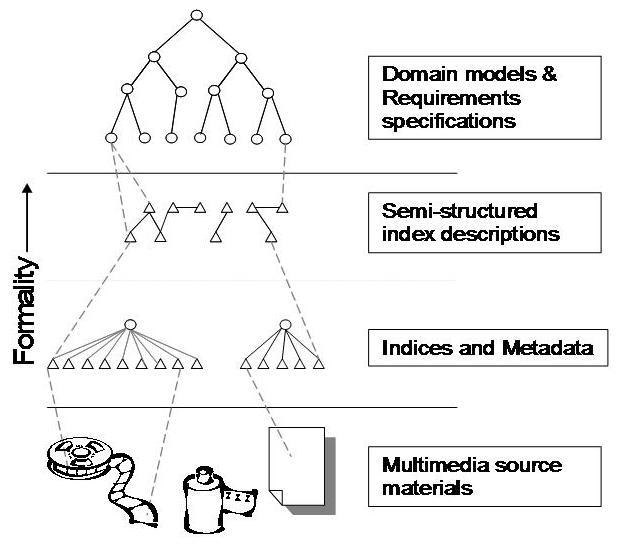 Traceability-preserving Evidence Capture for
Requirements Domain Modeling (TRECRE): Unified View and
Access to the Problem Frame Artifacts:
Through this effort we seek to investigate systematic ways of
preserving early problem frame artifacts, their
interdependencies, and their evolution throughout the RE
lifecycle for supporting adequate pre-traceability &
post-traceability. Such traceability facilitates a unified
view and access to the problem frame artifacts dispersed
across various RE stages and involved stakeholders.
Learn more... Traceability-preserving Evidence Capture for
Requirements Domain Modeling (TRECRE): Unified View and
Access to the Problem Frame Artifacts:
Through this effort we seek to investigate systematic ways of
preserving early problem frame artifacts, their
interdependencies, and their evolution throughout the RE
lifecycle for supporting adequate pre-traceability &
post-traceability. Such traceability facilitates a unified
view and access to the problem frame artifacts dispersed
across various RE stages and involved stakeholders.
Learn more...
Keywords: Requirements Traceability, Domain Model,
Knowledge Model, Problem Frame
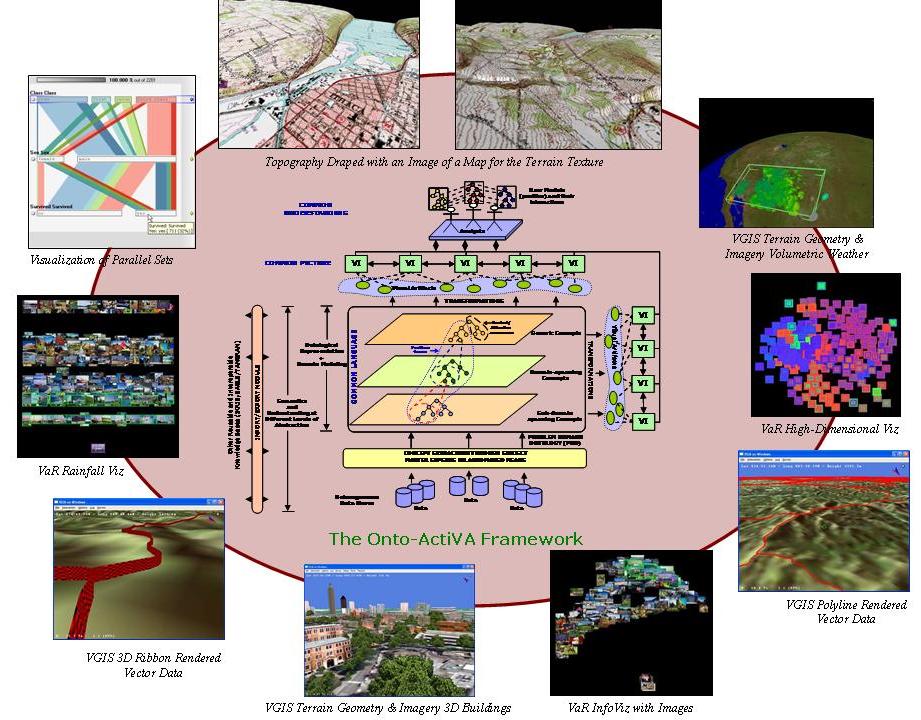 Ontology-driven Active Visual Analytics (Onto-ActiVA)
Framework:
The Onto-ActiVA framework systematically addresses the breath
and depth of visual analytics by going beyond traditional
stove piped solutions and providing collections of dynamically
configurable visualization components that are closely
relevant to the problem/task at hand in collaborative analytic
environments. Learn more... Ontology-driven Active Visual Analytics (Onto-ActiVA)
Framework:
The Onto-ActiVA framework systematically addresses the breath
and depth of visual analytics by going beyond traditional
stove piped solutions and providing collections of dynamically
configurable visualization components that are closely
relevant to the problem/task at hand in collaborative analytic
environments. Learn more...
Keywords: Ontological Engineering, Domain Modeling,
Visual Analytics
 Integrated Remote Sensing and Visualization (IRSV) System
for Transportation Infrastructure Operations and
Management:
(Funded by the US Dept. of Transportation) Integrated Remote Sensing and Visualization (IRSV) System
for Transportation Infrastructure Operations and
Management:
(Funded by the US Dept. of Transportation)
This project establishes an information management and
visualization system that integrates current CRS-SI
(Commercial Remote Sensing and Spatial Information) for
transportation infrastructure construction and monitoring for
the city of Charlotte and associated regions. The new
system will be built upon a large GIS-based platform and
utilizes existing CRS-SI, LiDAR scan, visual inspection and
large-scale data visualization.
Learn more (links to the
UNCC NCRST project web,
US National NCRST project web)
...
Keywords: Bridge Management, Critical Infrastructure
Protection, Remote Sensing, Knowledge Fusion, Service-oriented
Architecture
Building Probabilistic Ontologies for Requirements
Analysis:
Learn more...
Keywords: Requirements Analysis, Probabilistic Ontology
Model, Domain Model, Sensitivity Analysis
Software Assurance: Learn
more... (link to the
US-CERT: Software Assurance)
Keywords: Information Security/Assurance Research and
Education
Project Sponsors (since 2003 - present)
The views and conclusions contained in the NiSE home page are
those of the authors and should not be interpreted as
representing the official policies or endorsements, either
expressed or implied, of the following agencies or the U.S.
Government.
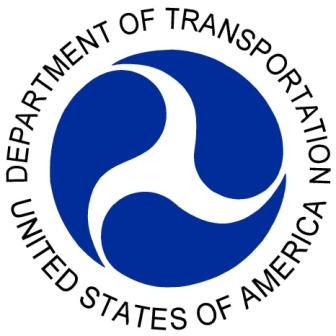    
   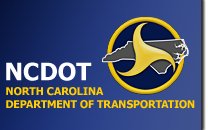
Members Only
|
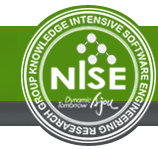














 Ontology-driven Active Visual Analytics (Onto-ActiVA)
Framework:
The Onto-ActiVA framework systematically addresses the breath
and depth of visual analytics by going beyond traditional
stove piped solutions and providing collections of dynamically
configurable visualization components that are closely
relevant to the problem/task at hand in collaborative analytic
environments. Learn more...
Ontology-driven Active Visual Analytics (Onto-ActiVA)
Framework:
The Onto-ActiVA framework systematically addresses the breath
and depth of visual analytics by going beyond traditional
stove piped solutions and providing collections of dynamically
configurable visualization components that are closely
relevant to the problem/task at hand in collaborative analytic
environments. Learn more...
 Integrated Remote Sensing and Visualization (IRSV) System
for Transportation Infrastructure Operations and
Management:
(Funded by the US Dept. of Transportation)
Integrated Remote Sensing and Visualization (IRSV) System
for Transportation Infrastructure Operations and
Management:
(Funded by the US Dept. of Transportation) 







